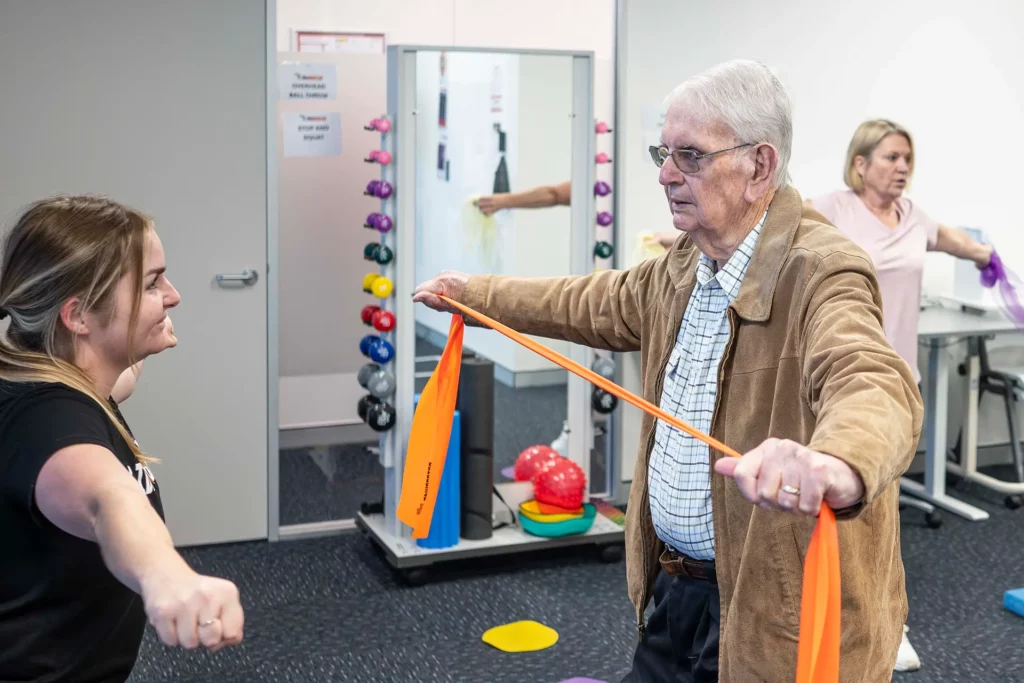- Task-specific training: Practising real-life movements to retrain the brain, helping with walking, siting, standing, and moving independently.
- Building strength: Tailored exercises strengthen weakened muscles, improving stability and slowing down further strength loss.
- Enhancing balance and coordination: Specialised exercises improve balance and coordination, reducing the risk of falls and improving ability to engage in functional tasks.
- Improving arm and hand function: Strengthening and coordination exercises help maintain movement and dexterity in affected limbs.
- Reducing pain: Physiotherapy helps alleviate joint and muscle pain caused by imbalances or improper movement.



